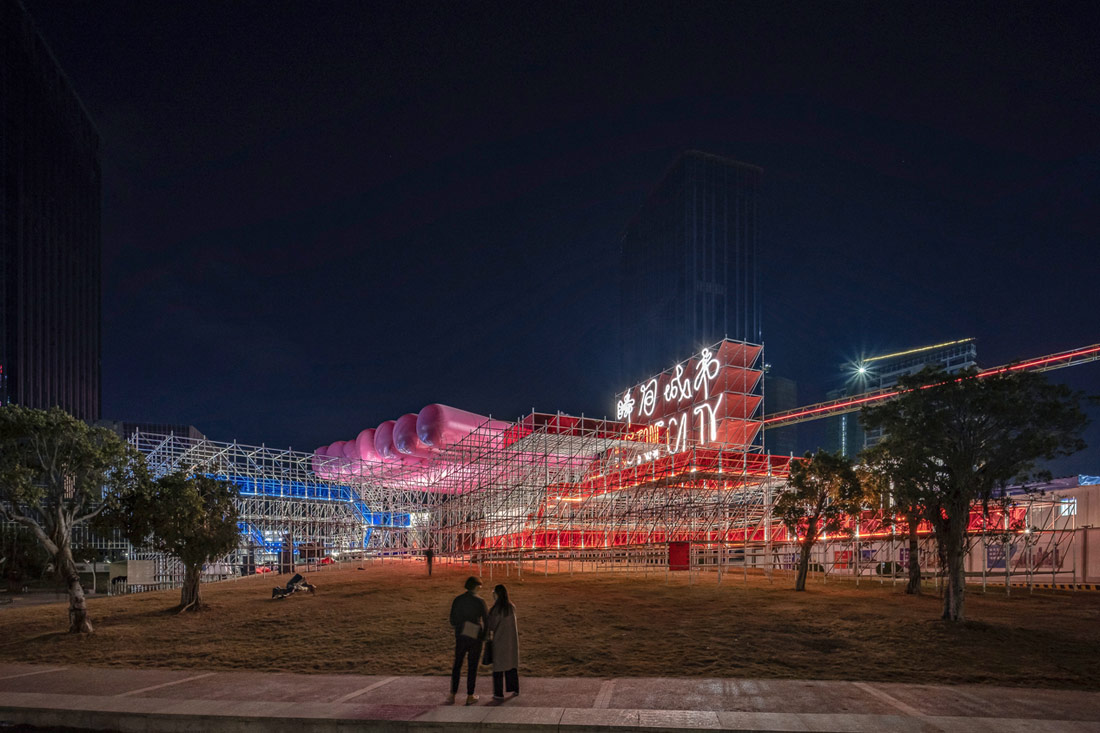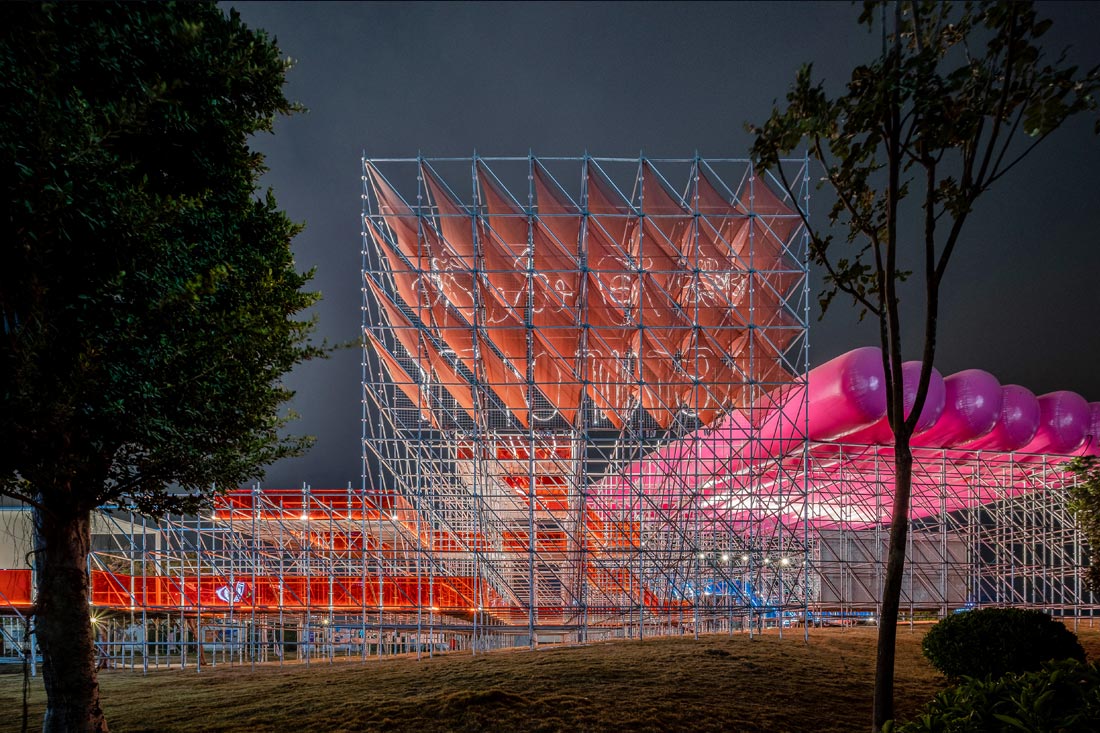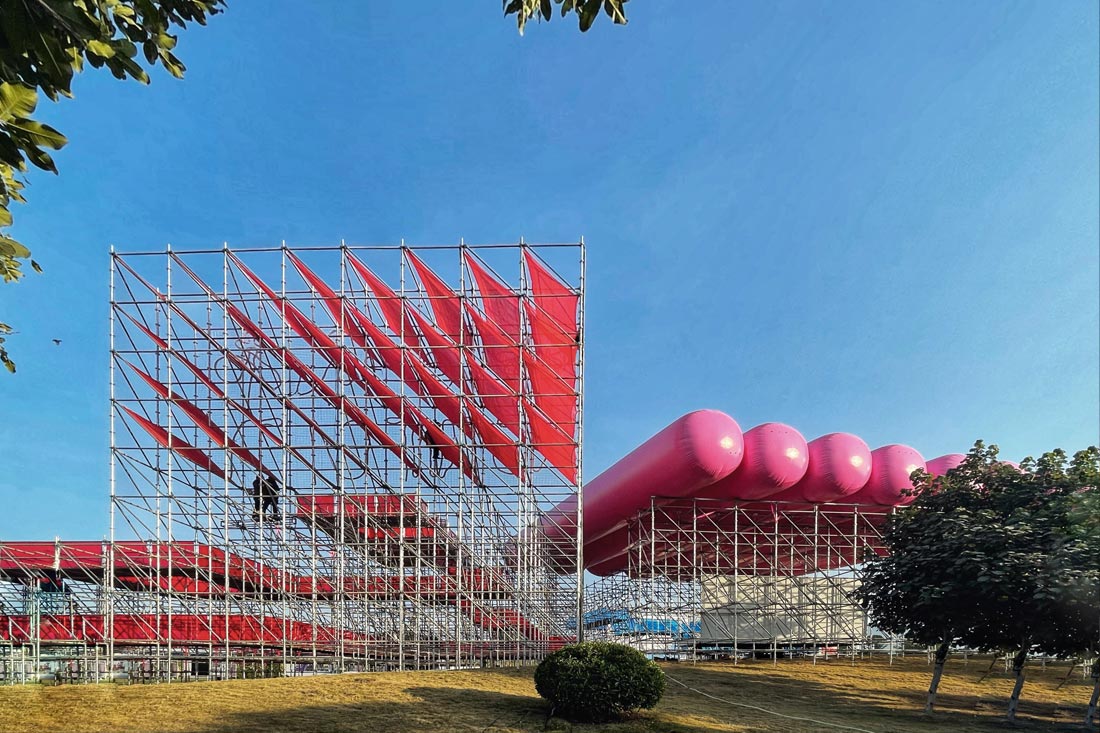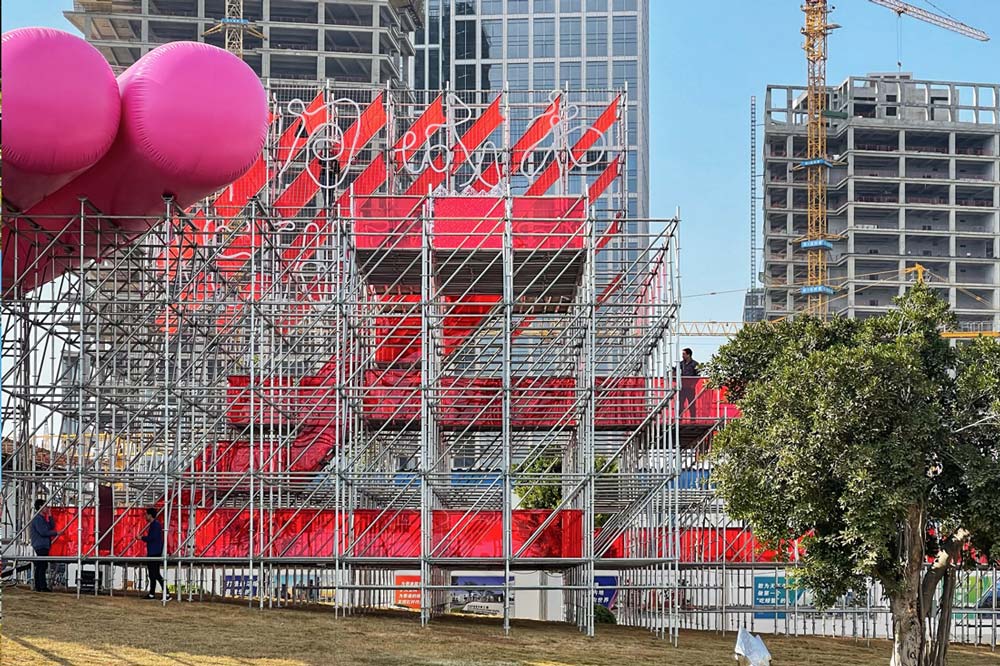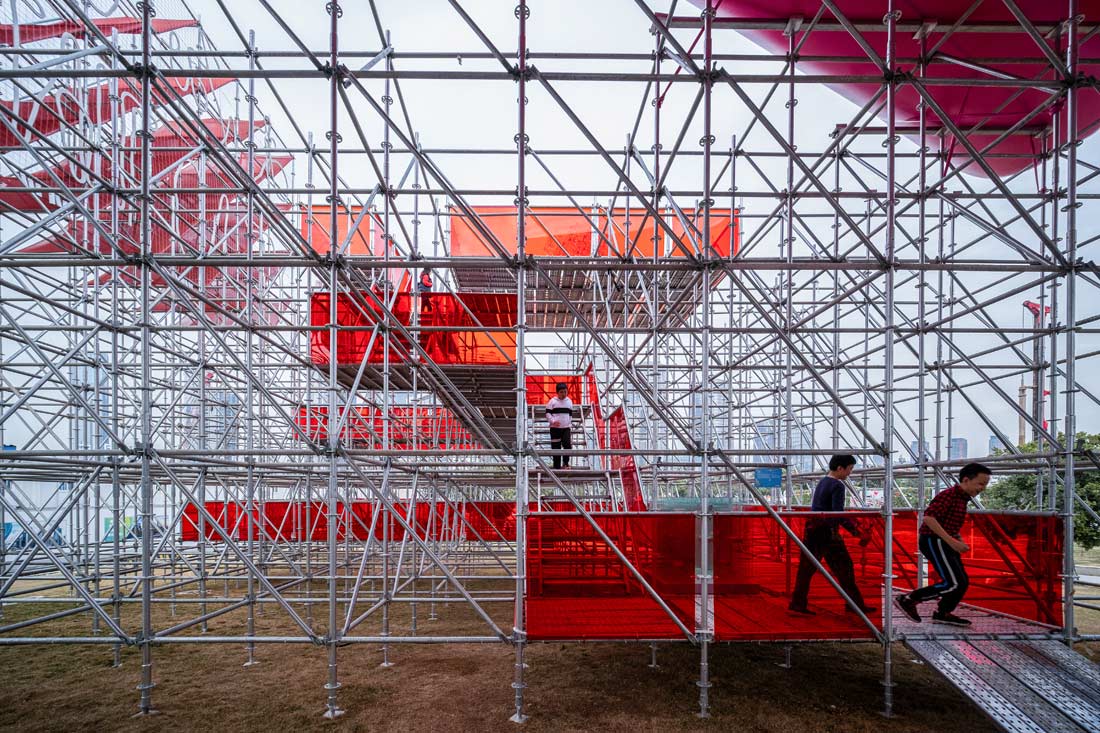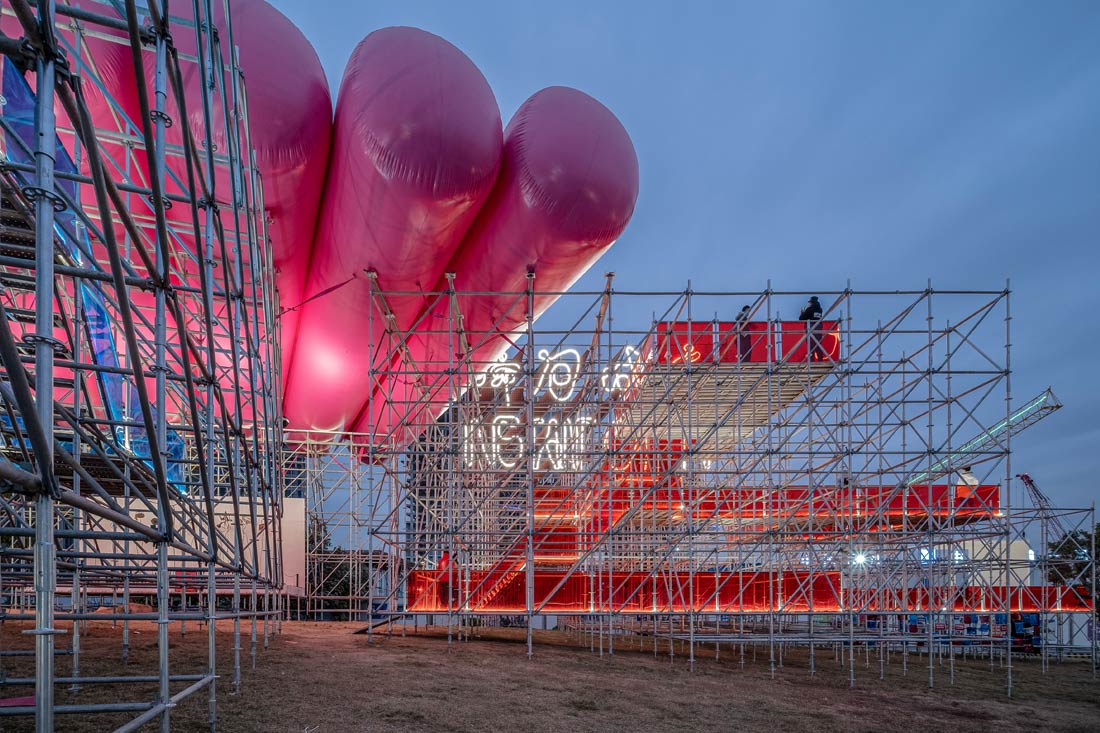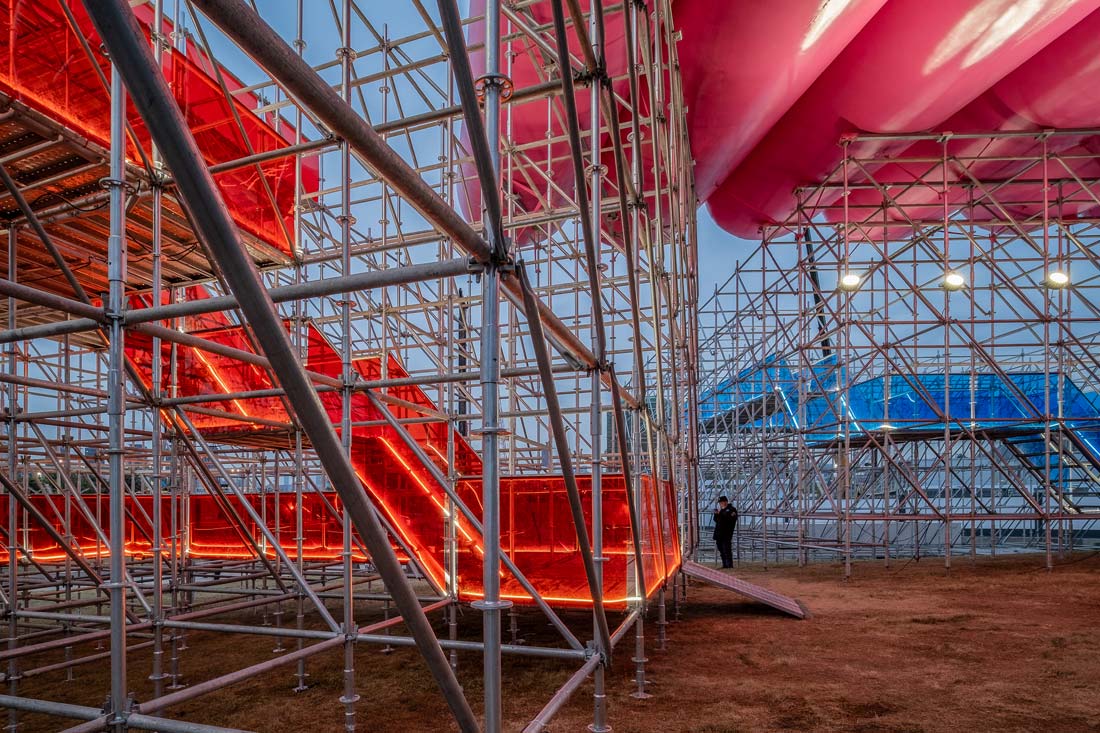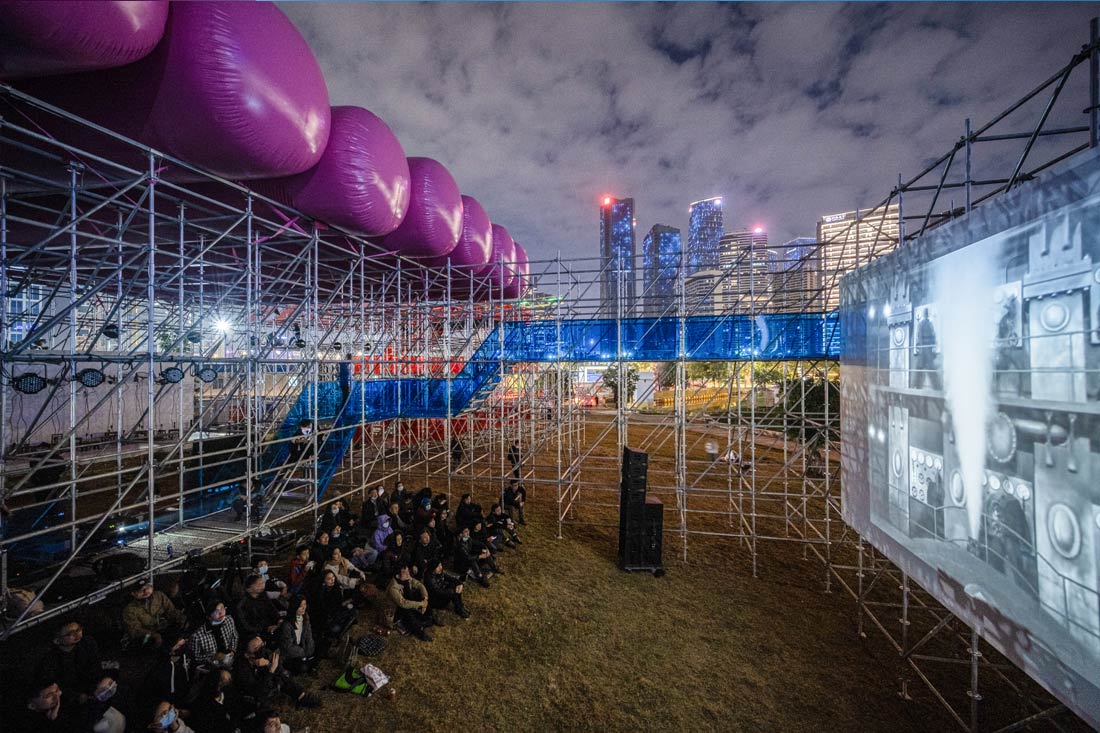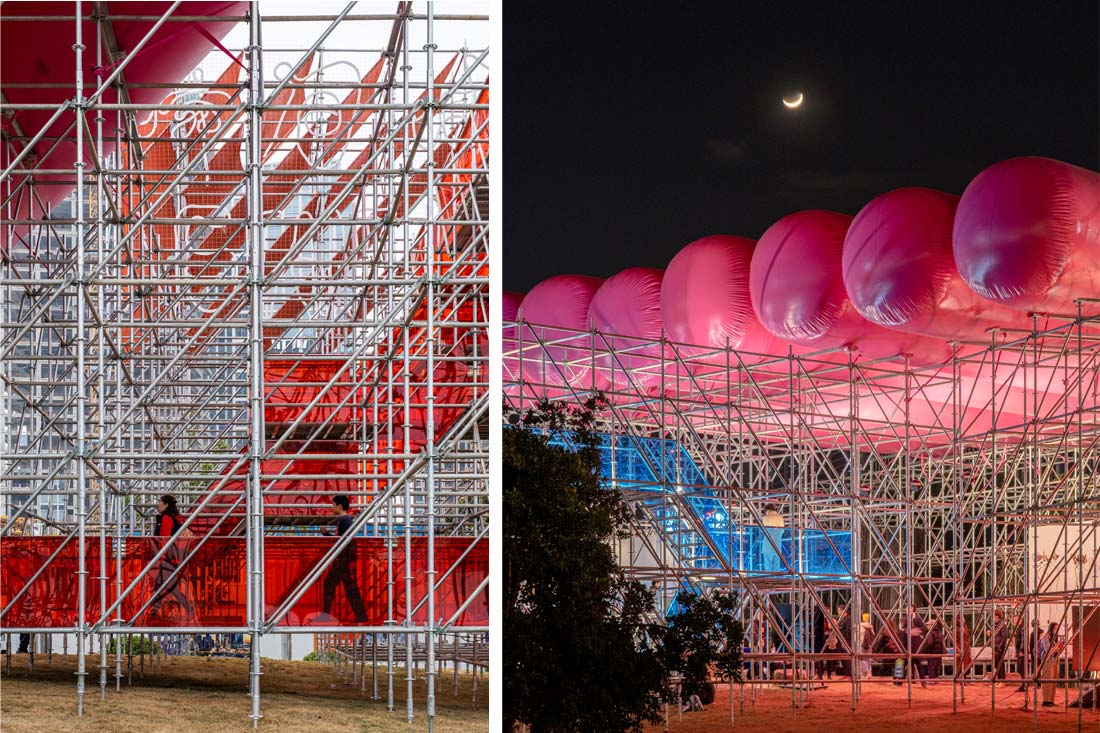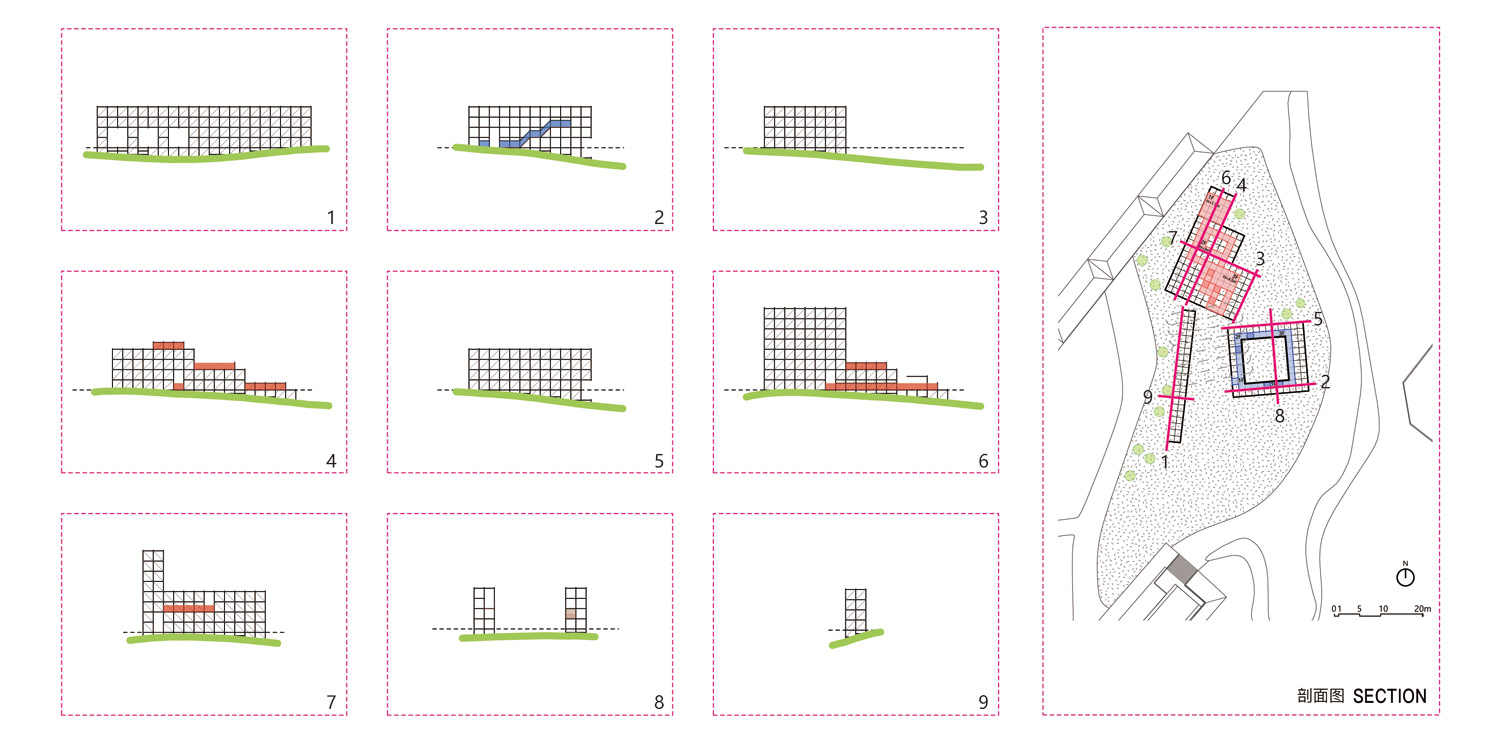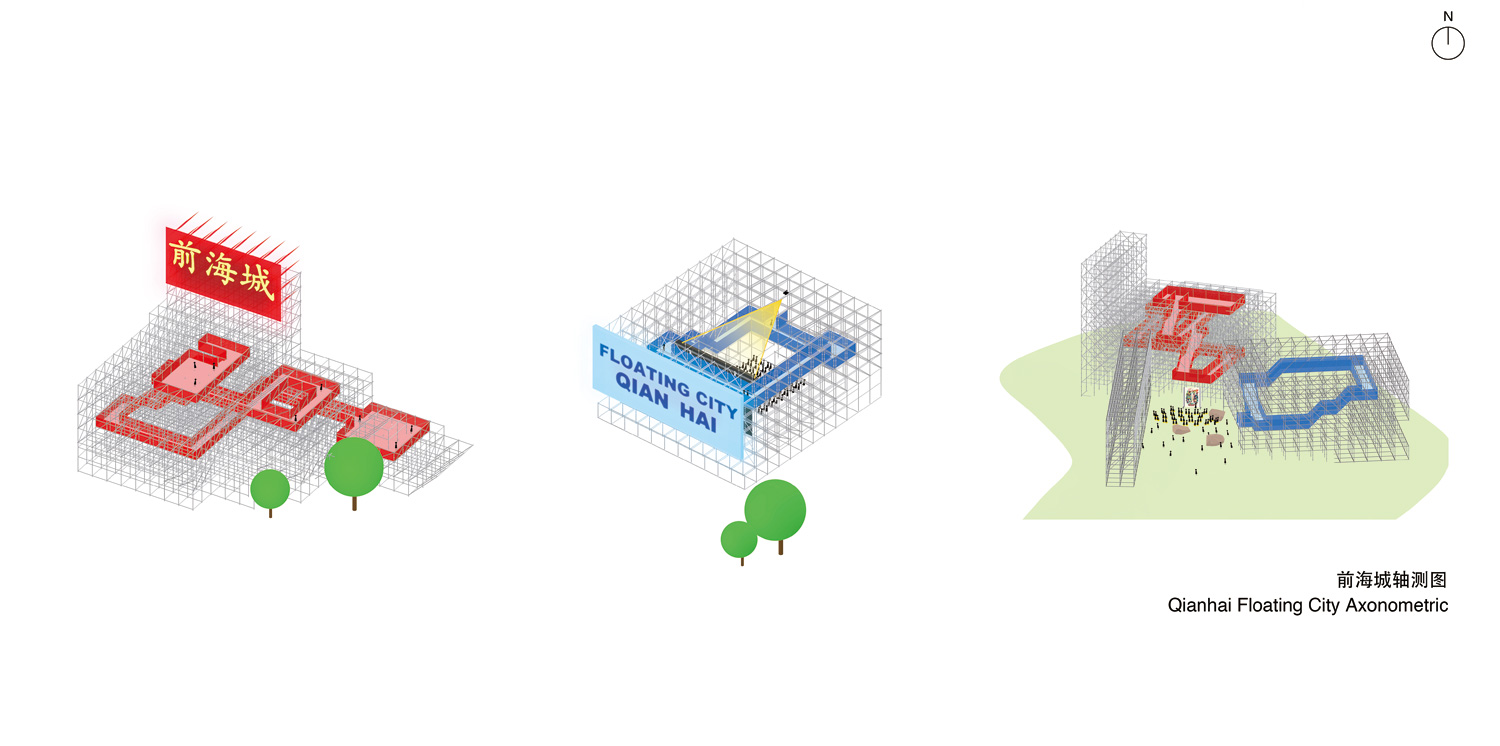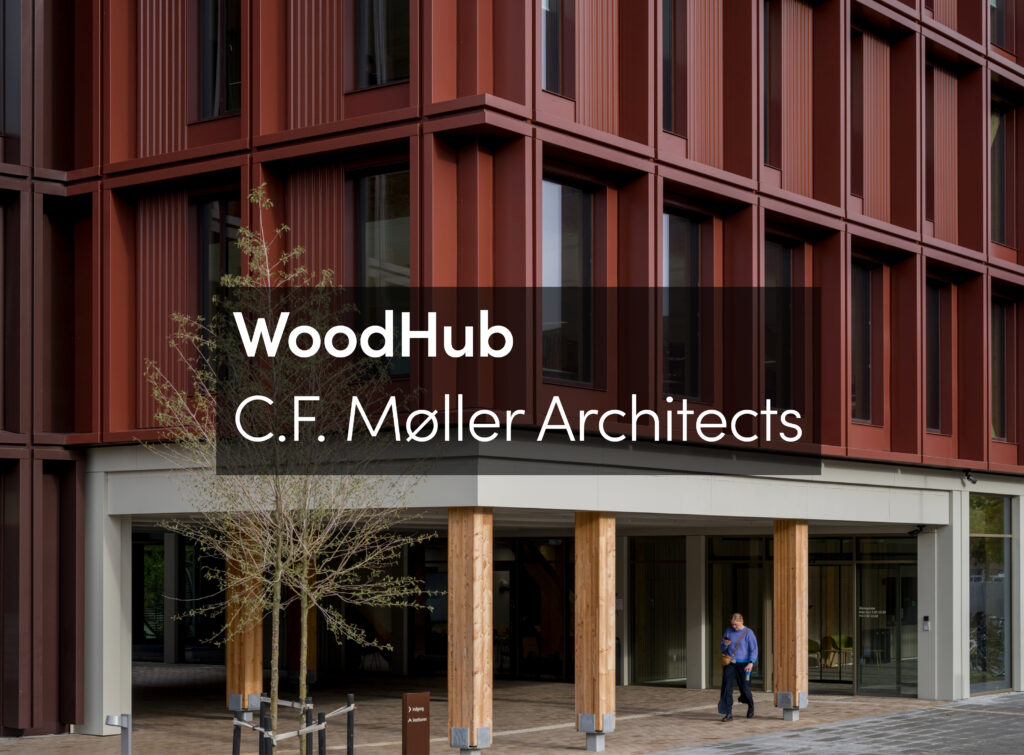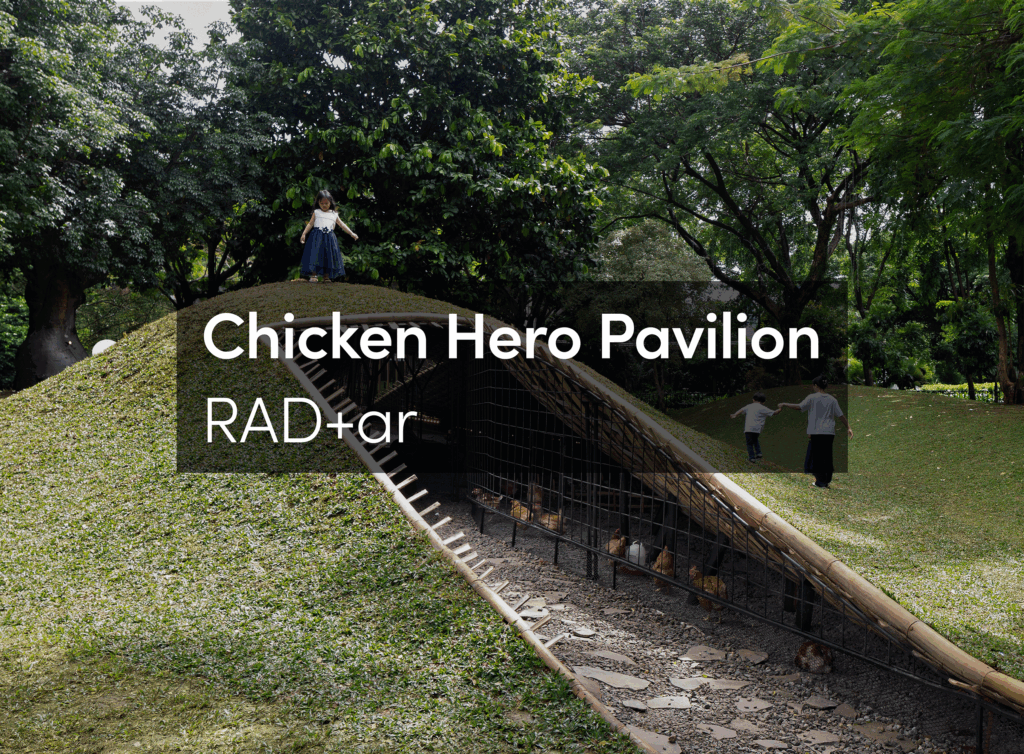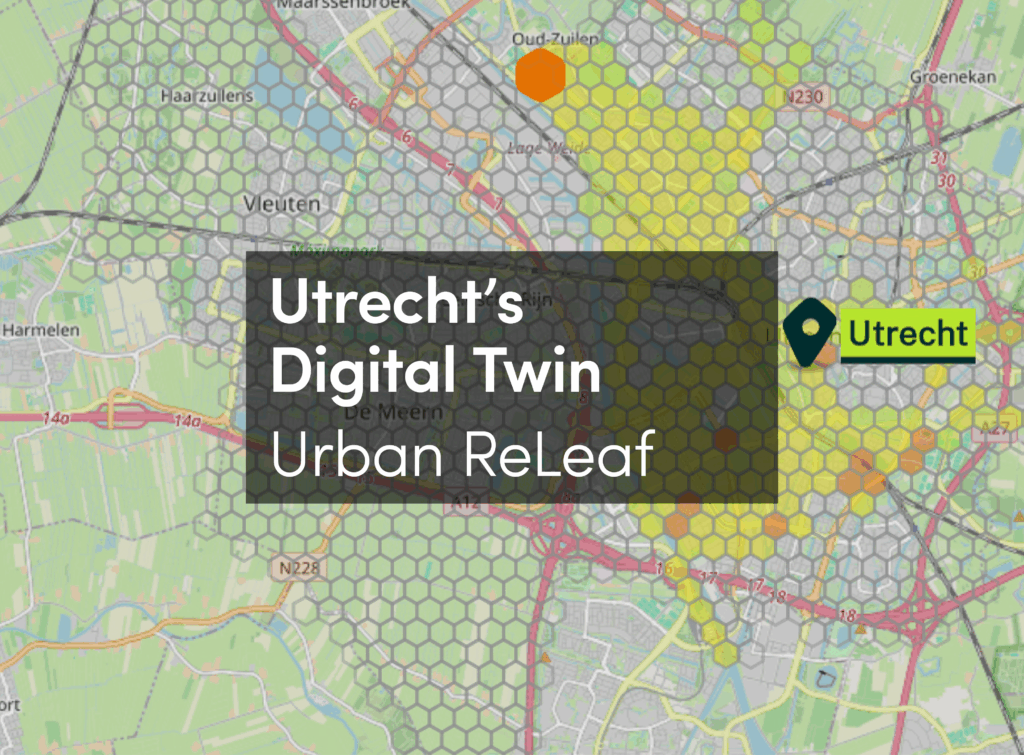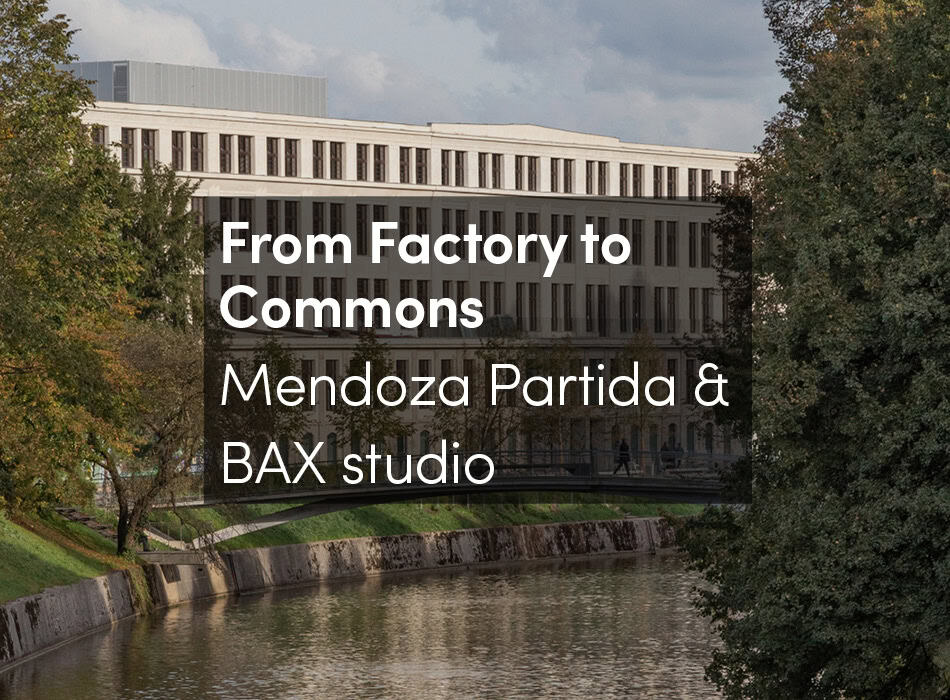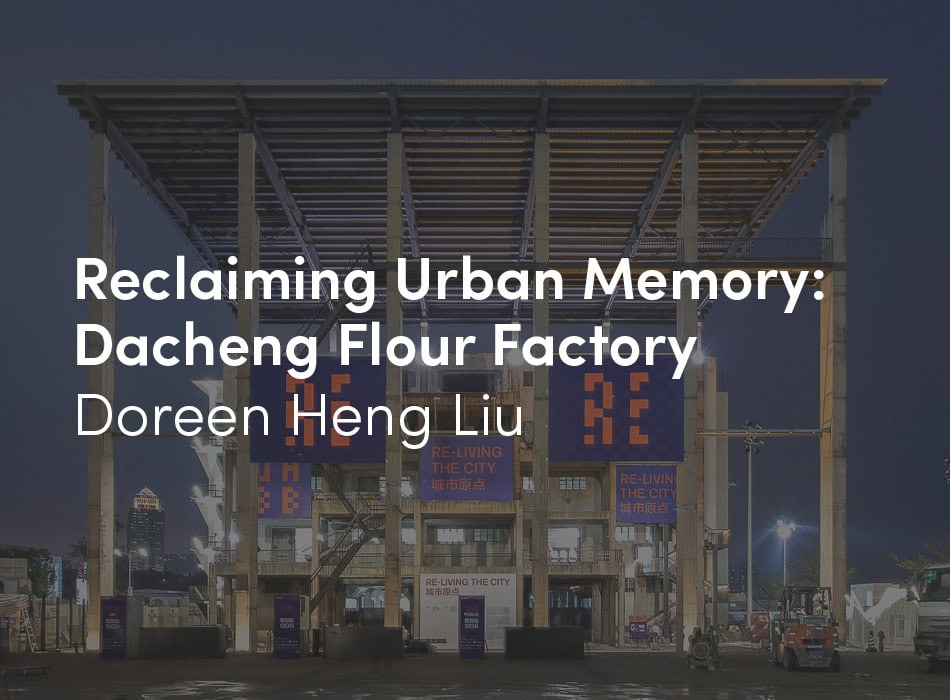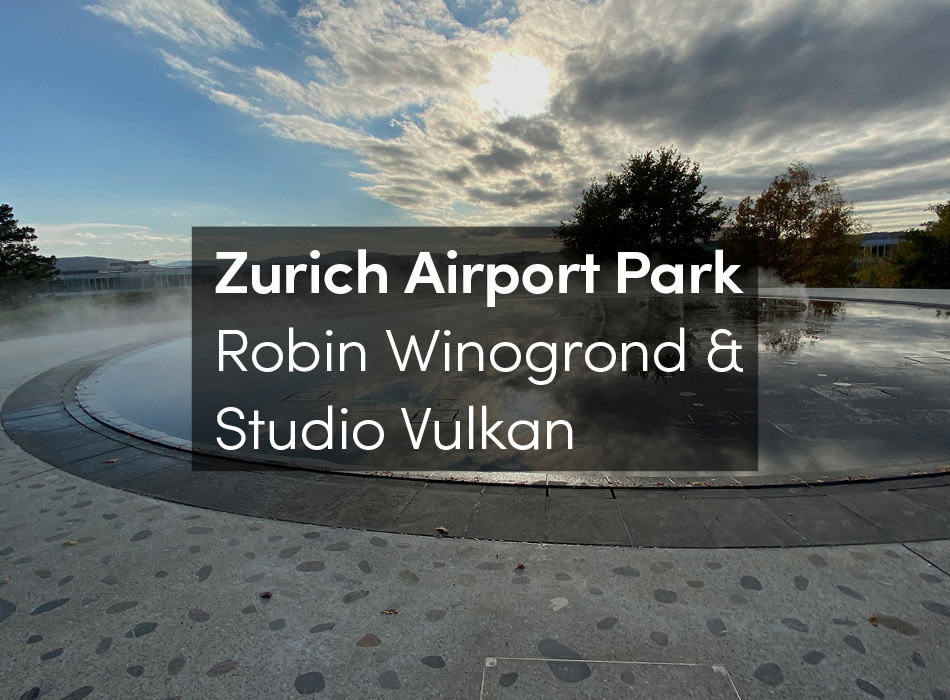The Qianhai Floating City activates a barren site with the use of an open spatial framework. Conceived and realized during the COVID-19 pandemic, a time of heightened uncertainty, the project is an expression of how urban space can quickly adapt to changing needs. The project is a flexible framework comprised of rented scaffolding. This structural system can be easily constructed, altered, and disassembled without waste.
Qianhai Floating City constituted the “Instant City” section of the 2020 Qianhai Future Urbanism/Architecture Exhibition.
This show explored new models for city planning based on public participation and bottom-up practices. Such approaches stand in contrast to the top-down urban planning that is the convention in Shenzhen, where Qianhai is located.
The design of the Qianhai Floating City was a collective effort and the result of discussions between exhibition participants. The structure hosted a range of shifting programs, including movie screenings, lectures, workshops and other public events.
Visitors could traverse the Floating City’s colorful pathways to explore various embedded artwork, and guests were offered encompassing views of the city as they inhabited the three-dimensional grid.





